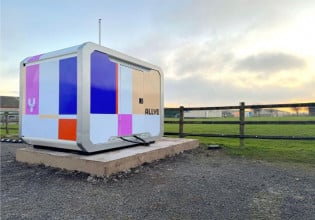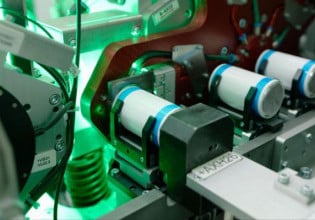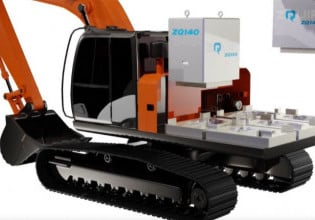Powercast LLC, a Pennsylvania-based start-up, unveiled its wireless battery technology and announced plans for its implementation in Philips Electronics N.V. consumer products later in the year. The company claims that its Powercaster and Powerharvester modules can recharge batteries in small devices like cellphones by using RF broadcasts over a small area (from up to a meter away). The technology has been approved by the Federal Communications Commission.
The Powercast is meant to either provide a continuous charge to a battery or replace batteries altogether. A transmitter from the electronic device sends out a continuous, low RF signal using the 900Mhz band to a receiver module measuring about half the size of a AAA battery. Any device containing AA or AAA batteries that is equipped with the receiver module will be continuously charged. The company claims that its Powercast technology is not dependent on any particular radio technologies, thus being able to use almost any 900Mhz transmitter or receiver.
After keeping the technology under wraps for three years, the company announced that it now plans to focus its implementation on the PC peripherals market. CE and IT manufacturers will first have to build the technological capability into their products, and thus far Powercast has only revealed Philips as a partner. RF power transmissions typically deliver milliwatts of power to devices using up to 4 volts, making it suitable for recharging small batteries in remote controls and flash-memory based devices like iPods. The company stated that medical implants will also begin using its wireless energy transfers later in the year. Although cellphones are also a potential market, the current Powerharvester modules can only recharge about half the capacity of a typical cellphone battery.






